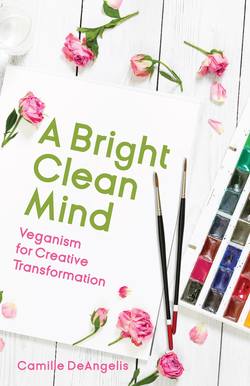Читать книгу A Bright Clean Mind - Camille DeAngelis - Страница 12
На сайте Литреса книга снята с продажи.
ОглавлениеCommon Stereotypes and Misconceptions about Vegans and Veganism
I’ll be addressing each of these beliefs in depth over the course of this book, but they’re so prevalent that it makes sense to look at them up front.
We’re judgmental and intolerant.
When you rave about bacon and a vegan gives you a dirty look, they’re thinking about everything a defenseless pig suffers in order to become the topping on your hipster doughnut. It’s true that we occasionally lose our cool and say something hostile, but it’s hard to be patient when we’re so keenly aware of the suffering (and environmental devastation and the nasty effects of meat and dairy on human health) and it seems like no one wants to listen.
We’re too idealistic.
You know how everyone’s so fond of that Gandhi quote, “Be the change you wish to see in the world”? Funny how folks tend to give us a hard time for following that advice.
We live a joyless, ascetic existence.
The complete opposite: I eat anything I want, and I’ve never been happier in my life.
Diet is a personal choice.
Not when your choice promotes the suffering of sentient beings. (This is my response to a privileged non-vegan audience with easy access to fresh produce, nutritional information, and other
resources. As food-justice activist Starr Carrington writes, “[I]t is inherently racist to impose blame upon the Black consumer for failing to consume healthier options without equitable education and awareness of one’s transitioning food environment.”)
Plant-based eating is expensive.
It can be if you buy a lot of faux meats, nut cheeses, and other fancy foods, but not if you get most of your groceries in the produce section and buy your grains, nuts, and legumes in bulk. (Also, keep in mind that government subsidies are behind the low prices for meat and dairy in the US. Ultimately, you may spend much more on healthcare for diseases promoted by the standard American diet.)
Vegans don’t care enough about human rights.
We believe all oppressions are interrelated. The system that tortures and kills innocent creatures for human consumption is ultimately the same system that starves human children all over the world, keeps the truth-seeking journalist in prison, and guns down unarmed Black Americans with zero consequences for the shooters. We need people working to dismantle this system from every angle.
Veganism is a lifestyle for well-off white people.
It’s true that vegan activists of color don’t receive the same level of recognition as white vegans, and privileged vegans must address the racism, classism, sexism, and ableism within our movement. Google “intersectional veganism” (or see suggested reading on page 259), and delve into the vital work of vegans from marginalized communities.
A compassionate lifestyle is an all-or-nothing proposition.
You’re not vegan if you’re occasionally eating dairy cheese or buying wool sweaters, but you’re still living more ethically than you were before. When you know better, you do better, and it’s like any other good new habit: if you slip up, just start again.
